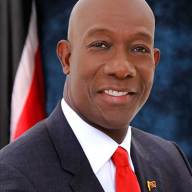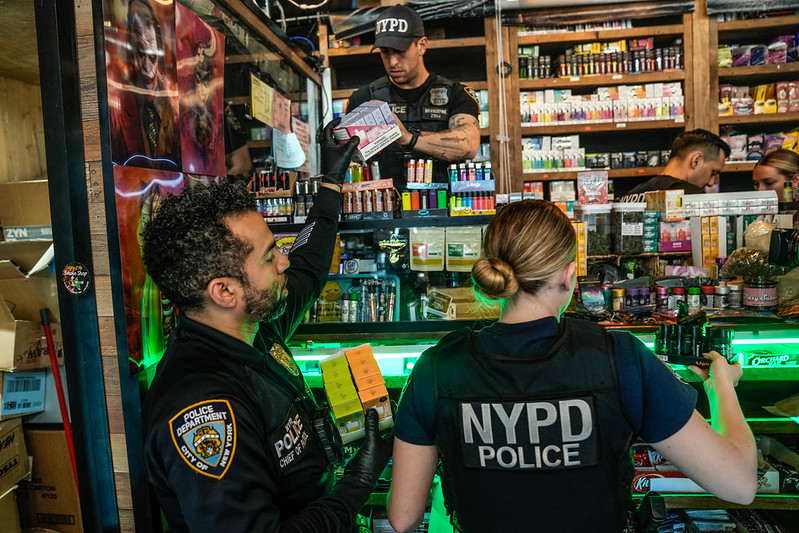In a first-of-Its-kind settlement aimed at preventing “deceptive and abusive” business tactics, New York Attorney General Eric T. Schneiderman this week announced a groundbreaking settlement with MPHJ Technology Investments, LLC, for using a so-called “patent troll” when it contacted hundreds of small and medium-sized New York businesses in an effort to strong-arm them into paying MPHJ for patent licenses of dubious value.
The settlement resolves the attorney general’s investigations into MPHJ’s conduct and imposes requirements on MPHJ when communicating with New York businesses in the future. The requirements imposed on MPHJ in the settlement “should be viewed by other patent trolls as the minimum standards that such entities seeking to contact New York businesses must follow, to avoid liability for unlawful deceptive practices,” a statement from the AG’s office said.
“So-called ‘patent trolls’ exploit loopholes in the patent system and have become a scourge on the business community,” said Attorney General Schneiderman. “They drain critical resources from small and medium-sized businesses that would otherwise be available for reinvestment and job creation, which are sorely needed across New York. State law enforcement can’t cure all the ills of the federal patent system, but the guidelines established in today’s settlement will put an end to some of the most abusive tactics by placing the industry on notice that these deceptive practices will not be tolerated in New York.”
Patent trolls – sometimes referred to as “patent assertion entities” – are not innovators. They buy patents owned by others and then try to turn a profit by aggressively pursuing businesses they claim infringe the acquired patents. In virtually all cases, the businesses targeted by patent trolls did not copy other companies’ technology. Instead, patent trolls argue that that independently developed technology or business processes used by the target – and in some cases, everyday business activities – require a license linked to the troll’s patents. MPHJ, for example, contends that most businesses that use an ordinary commercial scanner on a computer network with an everyday email system will infringe its patents.
Certain patent trolls, such as MPHJ, have adopted a strategy of targeting small and medium-sized businesses. These companies acquire patents of dubious validity, then send deceptive and abusive letters to a large number of small businesses in an effort to extract small, often nuisance-value license payments from them. This strategy can be successful, and the collective value of these smaller payments can be quite high, because smaller businesses often do not have the experience or resources needed to fully evaluate the patents. In MPHJ’s case, it told hundreds of New York businesses that they “likely” infringed its scanner-related patents, creating the impression that MPHJ had conducted a meaningful, individualized analysis of the targeted company’s business. In fact, MPHJ merely sent form letters to companies of a certain size and industry classification. In addition, MPHJ falsely told businesses that most other businesses it had previously contacted had acquired licenses when in fact only a handful of businesses had done so. MPHJ also provided misleading information about the fees that the (few) prior licensees had paid. And MPHJ falsely threatened to sue hundreds of businesses if they did not respond to its letters within two weeks; in fact, it has never filed a patent lawsuit against a New York business.
As redress, the settlement requires MPHJ to allow any licensees that received deceptive letters to void their license with it and receive a full refund, and it prohibits MPHJ from further contacting certain small businesses it previously targeted.
The settlement also imposes a variety of obligations on MPHJ that should serve as guidelines for all patent trolls engaged in similar patent assertion behavior. The federal patent system suffers from a variety of flaws that are exploited by patent trolls, and state deceptive practices laws cannot solve all the resulting problems. By restricting the tactics that patent trolls can use when contacting small and medium-sized businesses about possible infringement, the guidelines in this settlement should put an end to some of the most abusive and predatory tactics used by patent trolls.
Find more information at: Caribbeanlifenews.com
For example:
Diligence and Good Faith When Contacting Potential Infringers. The guidelines require a patent holder to make a serious, good-faith effort to determine whether a targeted business actually engages in infringement before making an accusation. This prohibits the mass mailing of accusations of infringement to hundreds of businesses with little regard to the actual likelihood that the businesses infringed. The guidelines also forbid using a lawyer as a threatening mouthpiece for baseless allegations. If a patent troll communicates through an attorney, the attorney sending such letters must also make diligent efforts to ensure that there is a good-faith basis for believing that the targeted business infringed the patents.
Providing Material Information So an Accused Infringer Can Evaluate the Claim. When a patent holder accuses a business of infringing its patent, the guidelines require it to explain the basis for the claim in reasonable detail. This information will allow the recipient to assess whether the accusation has any foundation in light of the actual activities of the recipient’s business. The guidelines also prohibit a patent holder from trying to collect revenue for a patent that has been held invalid, and from failing to disclose material information that reveals the patent’s likely invalidity.
No Misleading Statements about a License Fee. If a patent holder seeks to justify a specific licensing fee, it must clearly explain the factual basis for its proposed fee. This requirement prevents a patent troll from taking advantage of informational asymmetry to deceive businesses into paying more than a fair price for a license.
Transparency of the True Identity of the Patent Holder. The guidelines prohibit a patent troll from hiding its identity from its targets. This allows businesses that have been targeted by patent troll campaigns to find information about the patent troll. Ensuring transparency has a number of positive effects, including allowing targeted businesses to find and communicate with one another.
The guidelines in this settlement are minimum standards – they are not a safe harbor. The Attorney General’s Office is continuing to review the activities of patent trolls and will step in to stop abusive practices regardless of whether the guidelines are technically met. It is also willing to supplement the guidelines with additional requirements in future cases.
Law Professor Robin Feldman, the director of the Institute of Innovation Law at the University of California Hastings College of Law, said, “Misrepresentation and downright fraud have become a major problem with patents, particularly against vulnerable targets like individuals and small businesses. Today’s historic New York settlement agreement strikes at the heart of this inappropriate behavior while protecting the legitimate exercise of patent rights. The agreement provides a model for other states, and for federal regulators as well.”
Daniel Ravicher, executive director of the New York-based Public Patent Foundation, said, “It is crucial that government enforcers do whatever they can to prevent patent trolls from abusing flaws in the patent system. We applaud the New York Attorney General for identifying some of the most abusive tactics used by patent trolls and finding a way to stop them. New York’s new patent troll guidelines are a significant and valuable contribution to the overall effort to curb abuses by patent trolls.”
Daniel Nazer, an attorney at the Electronic Frontier Foundation, said, “The Electronic Frontier Foundation applauds the New York Attorney General for working to protect New York businesses from abusive patent troll practices. The settlement announced today is a major step forward in the fight against patent trolls and will help protect some of the most vulnerable targets of patent trolling activities. It is extremely important that small and medium businesses that typically can’t afford expensive patent counsel not be subjected to deceptive and misleading patent letters. We hope that other law enforcers will follow New York’s lead.”
Professor Michael Carrier, distinguished professor of law at Rutgers Law School, said, “Patent trolls are engaging in mass campaigns of deception, trying to scare small and medium businesses into paying ransom money. The settlement the New York Attorney General announced today is a bold step that fits comfortably within the state’s power to police deceptive acts, and it will play a crucial role in addressing the problem. The requirements that New York is imposing on patent trolls will stop some of the most abusive practices and allow small and medium businesses to compete more effectively in the market.”
The Attorney General’s investigation was led by Eric J. Stock, chief of the Antitrust Bureau; Zachary Biesanz, assistant attorney general in the Antitrust Bureau; and Karla G. Sanchez, executive deputy attorney general for Economic Justice.

























